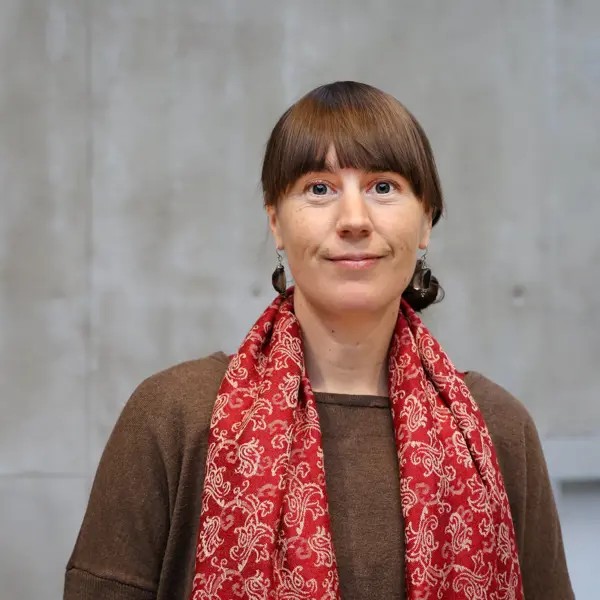Helene Ahlborg
Helene Ahlborg’s research is about energy futures in East Africa and societal transformation. She studies the co-development of technology and society and how provision of electricity services, based on renewable energy resources, impacts on people’s lives and transforms rural communities and local economies. Her work is focused on how various contexts – from village to town – practices, institutions, and flows of people, electricity, technologies, money and knowledge shape energy systems and public services in the East African region. She leads a team of social scientists working on local and global energy transitions towards more diverse and decentralized energy systems. Two themes are at the core of this work: power, politics and governance; and the energy system’s embedding in everyday life. To address these overarching themes, the team works on energy geographies, knowledge politics, innovation from East Africa, energy entrepreneurship, and policies and strategies for inclusive and just transformations. Helene leads a global-scope review component within an international research program focused on inclusive energy transitions, under the IEA umbrella (Users TCP): Empowering all. Gender in policy and implementation for achieving transitions to sustainable energy (2021-). She is also a member of Scientific Advisory Committee for the OECD EPIC Household Survey Project, initiated 2021, and working on the design and analysis of the energy section of the survey. The study provides timely insights into public preferences around policy action for addressing energy poverty, reducing high energy use in households and speeding up energy transitions across the nine participating countries. Her background is in social environmental science. Theoretically her work builds on and contributes to debates in the fields of energy and development, rural development, innovation and sustainability transitions, science and technology, socionatures, feminist theory and power theory. She has previously been affiliated as guest researcher at Sussex University and the Science and Policy Research Unit (SPRU), Brighton, UK, and at UNAM, Morelia campus, in Mexico.
Her empirical work is focused primarily on Rwanda where she co-leads a research training program (2019-) with doctoral students and postdocs jointly with University of Rwanda and its Center of Excellence in Energy for Sustainable Development. There, she supports the strategic development of student-led innovation for sustainability solutions, with an Innovation Hub that bridges between academia and the energy sector, providing students with skills and possibilities to develop home grown solutions to community needs.

Showing 45 publications
Technological power, complex systems, and boundary objects in global energy transitions
Thirty-five years of research on energy and power: A landscape analysis
Dismantling Power and Bringing Reflexivity into the Eco-modern Home
Introducing Uncertainty. Community Driven Development and Local Collective Action Capacity
A global super-grid: sociotechnical drivers and barriers
Chimeras of Resource Geographies: unbounding ontologies and knowing nature
Theorizing power in political ecology: the where of power in resource governance projects
Three electricity futures: Monitoring the emergence of alternative system architectures
Changing energy geographies: The political effects of a small-scale electrification project
Institution building in challenging contexts – energy for development in Tanzania
Towards a conceptualization of power in energy transitions
Powering institutions – credibility, enforcement and legitimacy
Flexible distribution design in microgrids for dynamic power demand in low-income communities
Towards a conceptualization of power and micro-level politics in energy transitions
Small-scale hydropower in Africa: Socio-technical designs for renewable energy in Tanzanian villages
Förnybara energikällors inverkan på de svenska miljömålen
Jämställdhet ger bättre klimat – genusperspektiv nödvändigt för att lösa klimatfrågan
Download publication list
You can download this list to your computer.
Filter and download publication list
As logged in user (Chalmers employee) you find more export functions in MyResearch.
You may also import these directly to Zotero or Mendeley by using a browser plugin. These are found herer:
Zotero Connector
Mendeley Web Importer
The service SwePub offers export of contents from Research in other formats, such as Harvard and Oxford in .RIS, BibTex and RefWorks format.
Showing 11 research projects
Empowering all. Gender in policy and implementation for achieving transitions to sustainable energy
Understanding innovation practices for inclusive and sustainable energy services
Societal and environmental aspects of decentralized electricity systems, part 2
Research Training Partnership with University of Rwanda – Capacity Development in Sustainable Energy
Societal and environmental aspects of decentralized electricity systems, part 1
Islands of success. How to make development projects work in challenging contexts
Providing Renewable Energy Technologies to Productive Use for Rural Electrification (STEEP-RES II)